Today’s workplace is dramatically different than it was just a few years ago. It goes without saying it would be difficult for most to imagine the working environment more than six decades ago.
When Province resident Mary Ann Shaw joined Trans World Airlines in 1961, she — like her colleagues at the time — signed a contract agreeing to resign if she became pregnant. Flight attendants weren’t allowed to get fat, wear glasses or work after age 35.
Shaw enjoyed her initial eight years traveling the world with TWA. At one point, she was part of a crew that worked on a weekly flight to Paris.
Asked about special memories, she responded, “The layovers. Flying European flights and having the pilots announce we would all be eating dinner on the beach across the road from the hotel. Watching the sun set in Monte Estoril on a layover in Lisbon. Another one was securing a boat in Okinawa and motoring to a nearby island for a swim.”
TWA was one of the airlines with a government contract to fly soldiers to and from Vietnam. Shaw was part of the Military Air Command program from 1965 to 1969 before losing her job when she started her family with her husband, Joe.
A class action lawsuit challenging the “no pregnancy” provision began in the late 1960s. It was settled 11 years later, in 1979, with the U.S. Supreme Court ruling in favor of the flight attendants. The primary reason cited by the court was men were not fired for becoming fathers, but women lost their jobs when they became mothers.
The decision covered 430 plaintiffs, with 200 indicating an interest in coming back to work for the airline. Shaw was one of those.
Three years later, with her daughters aged 13 and 11, Shaw returned to her former employer. It was not a decision made lightly — and it came with its own set of challenges.
“I went back at age 45,” she recalled. “You certainly thought about it. You knew what it was going to be like, not because you went back but because of how you were going to be treated.”
That was because the returnees — negatively referred to as “remos” or returning mothers — were granted seniority for all the time they were out of jobs. In an industry where seniority is key for everything from route choices to opportunities for flying standby, the union was strongly opposed to the returnees. This was despite the settlement that gave those same union members up to a year to return to work after their baby was born.
Shaw wrote in a self-published memoir, Everyone Has a Story, “Supposedly, there was a black book with all the mothers’ names in it. I never saw it. But many times, I did see the effect of the hate that was spread. A whisper was all it took while in flight for someone to say, ‘If I got caught talking to you, I could get in trouble.’ I also remember making a date to see the museum underground in Paris with another flight attendant. She called and cancelled as someone had told her I was ‘one of them.’”
Nevertheless, Shaw worked for TWA (purchased while in bankruptcy by American Airlines in 2000 and dissolved a year later) for more than a decade after that. Another benefit of the settlement was the plaintiffs had the opportunity to take their pensions from the company in a lump sum, something that was not available to other TWA employees.
Shaw, 86, and her husband spent 25 years in retirement in Florida before experiencing one too many hurricanes and relocating to Maricopa in 2021.
Doing her duty
One of the highlights of Shaw’s career was the flights to and from Vietnam. The schedule went something like this:
- Travel from San Francisco airport to Travis Air Force Base near Sacramento.
- Flight to Honolulu and a layover where crew members would often go to a club in the basement of the hotel and see Don Ho perform.
- Flight from Honolulu to Kadena Air Base in Okinawa and another layover.
- Transport Army soldiers to Bien Hoa Air Base in Vietnam and pick up other soldiers who were returning home.
- Reverse the route, to Okinawa, Honolulu, Travis and San Francisco.
“Approaching the Vietnam air base, we’d always ask soldiers to lower their window shades,” Shaw remembered. “Many GIs thought it was because it was so horrible on the ground that we didn’t want them to see it so soon. The real reason the shades were lowered was because it was so hot outside, and we didn’t want the airplane to get any hotter as we sat on the ground.”
In Okinawa, Shaw would sometimes drop off one of her husband’s suits to be copied by skilled tailors. She would pick up the finished suit on the return trip.
But there was also the reality of the work they were doing in a war zone.
“I remember one time looking out the window on a beautiful sunny day as we were approaching the airport in Vietnam. I noticed a little village with a pretty church in the middle,” Shaw recounted. “Where were the people, I wondered? Then in an instant, I saw the entire village explode in flames.”
In an article for the TWA Retired Pilots Association magazine, she wrote about her final flight (she was pregnant and knew she was going to lose her job) for the Military Air Command.
“About three hours out of Okinawa, the captain asked me for my lipstick. It was then I noticed the windshield of the airplane was developing cracks. The pilot rubbed my lipstick on the glass, trying to see if the cracks were on the inside or outside pane of the shattering glass.
“Shortly after that, I was told that the dials were showing we were losing hydraulic fluid. At this point, the pilots instructed the hostesses to put on our oxygen bottles. Our poor GI passengers — they had survived Vietnam and now this!”
She continued, “We flew low in case the windshield blew in. When we were close to Hawaii, the captain radioed the tower requesting the use of the long runway. The answer was no as President [Lyndon] Johnson was landing that afternoon and the long runway had to be secured.
“We ended up landing with the captain looking out the side window because the front windshield of the plane had thousands of cracks in it. Luckily, there was enough hydraulic fluid remaining to stop the plane on the short runway.”
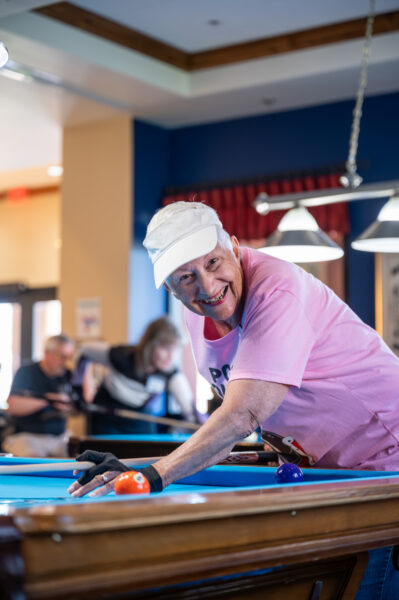
No escape from scheduling
Baseball’s 1989 World Series is best remembered for the earthquake before Game 3 that put the Bay Area battle between San Francisco and Oakland on hold.
Shaw had a dental appointment in the Bay Area at the game time of 5 p.m.
“BOOM! It started shaking!” she exclaimed. “Of course, the dentists and I stood in the doorway, which is the strongest place in a building. I was hesitant to resume the drilling after the shaking stopped.”
The damage and destruction didn’t deter a telephone call from TWA scheduling.
“Once I answered the phone, there was no escape,” Shaw recalled. “Even though the airport was closed, as soon as the runways are inspected, the planes will be full of people wanting out of California, they said. But the Bay Bridge is closed because of severe damage, I again pleaded.
“’Drive down under the bottom of the Bay Bridge and return to the airport by way of Highway 101,’ was the response. ‘When you get here, you will be given an assignment,’ they said. There was no escape from TWA scheduling.”
In bringing this part of her career full circle, Shaw’s youngest daughter Susan wrote an essay while in college interviewing someone in the workforce. Susan chose her mother.
“After the professor read Susan’s paper, the class spent an additional two periods in discussion of discrimination,” Shaw said. “The professor wanted Susan to publish the paper as almost no one knew about that discrimination in today’s world.”
Shaw knew. And she not only survived but thrived in her career as a flight attendant.

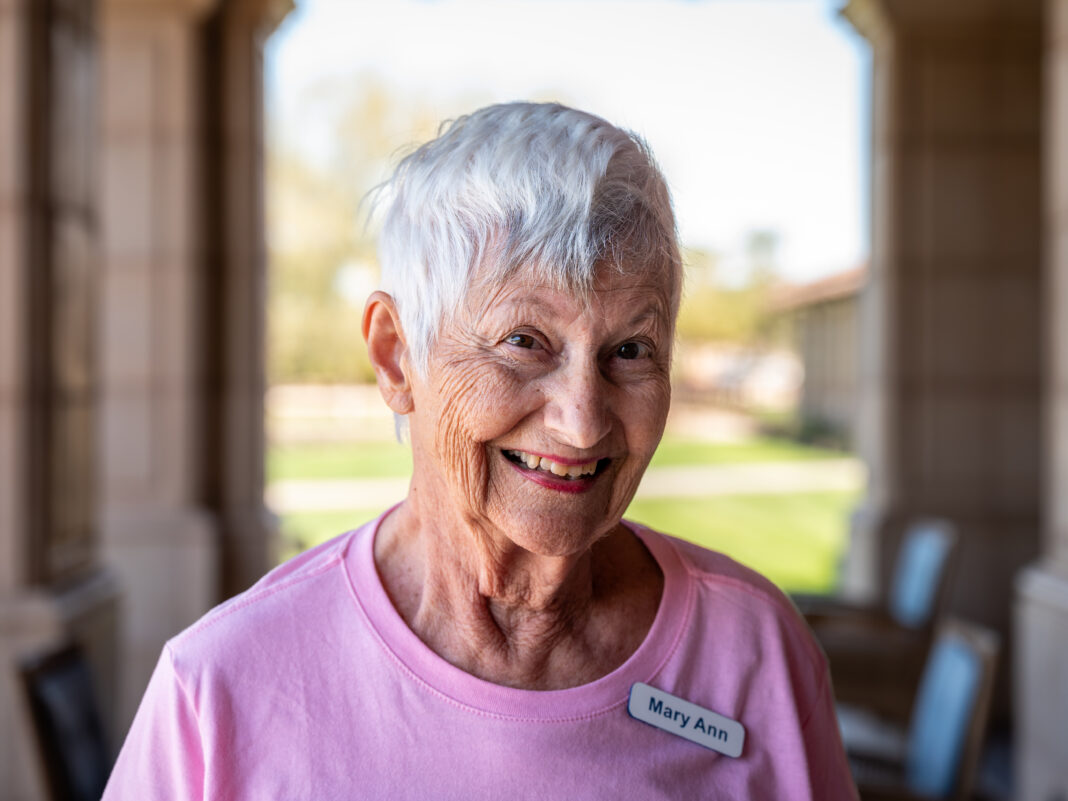
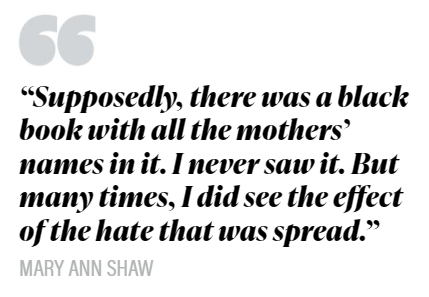

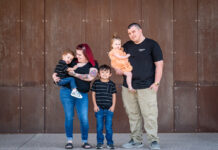




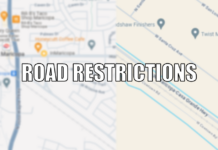

![City gave new manager big low-interest home loan City Manager Ben Bitter speaks during a Chamber of Commerce event at Global Water Resources on April 11, 2024. Bitter discussed the current state of economic development in Maricopa, as well as hinting at lowering property tax rates again. [Monica D. Spencer]](https://www.inmaricopa.com/wp-content/uploads/2024/04/spencer-041124-ben-bitter-chamber-property-taxes-web-218x150.jpg)


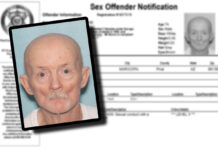
![Alleged car thief released without charges Phoenix police stop a stolen vehicle on April 20, 2024. [Facebook]](https://www.inmaricopa.com/wp-content/uploads/2024/04/IMG_5040-218x150.jpg)



